Andreas Strehler Sauterelle à Lune Perpétuelle, Lunar Tetrads, And Blood Moons – Reprise
If you are a person that sees a change in the sky as a sign from the heavens, then it is very likely you know all too well what a “blood moon” is. You probably also had a very stressful night on April 14, 2014 as the first of four “blood moons” in that year appeared in the sky over most of the Americas and the Pacific Ocean.
Many other people experienced that night in a stressful manner as well, mostly from trying to finish their taxes by the American April 15 due date. But since I leave prophecy to the professionals (and I had already finished my taxes), I wasn’t worried. Indeed, I was not very familiar with the term “blood moon” before, but immediately understood what it meant when I first heard it.
Science and astronomy nerds will have a very different view of April 14, 2014. That was the night that the first total lunar eclipse of the current lunar tetrad took place. A lunar tetrad is a somewhat rare series of four total lunar eclipses with no partial eclipses between, all spaced six months apart, with six full moons before the next total eclipse of the moon. I think Bonnie Tyler would agree that forever is going to start tonight . . . or that night. You know what I mean.
Why blood moon?
But why is it called a blood moon? Oh yes, I almost forgot. The reason is because of the phenomenon that occurs only during a total lunar eclipse. Actually that isn’t correct; it also happens sometimes when the moon is rising and setting as well. But the effect is most spectacular during a total lunar eclipse.
It has to do with the atmosphere. When the moon is completely covered with the earth’s shadow during an eclipse, the light from the sun is blocked from reaching the moon directly, so it cannot reflect and shine back at us like it usually does. Random astronomy nerd side note: lunar eclipses can only occur during a full moon when the sun is opposite the moon relative to the earth. Approximately 14.76 days later a solar eclipse will occur during the new moon.
But the sun’s light is also passing through our atmosphere, which extends 50 miles (80 kilometers) beyond our planet’s surface. This mixture of gases, dust, and particles filters out most of the visible spectrum of the sun, but allows a very narrow band of red to sneak through.
Just like light passing through water, glass, or a prism, light passing through the atmosphere is also bent slightly, sending it on a new trajectory straight toward the hidden moon and this casts a red glow over our heavenly orb. Depending on the exact composition of the atmosphere at the time, e.g. dust, smoke, pollution, moisture, the glow can range from very light orange to a deep red; and, extremely rarely, a dark red-brown.
Luckily, we have three more chances to view this wonderful phenomenon over the course of the next one and a half years as the three remaining total lunar eclipses will occur, every six months until September 28, 2015.
And if you happen to be a lucky owner of an Andreas Strehler Sauterelle à Lune Perpétuelle, you will be able to accurately count every full moon during this period. Actually, if you happen to have that amazing watch, you’ll be able to count every full moon for quite a while.
Full moon in perpetuity
“How long, exactly,” you ask? Well, based on the math and verification calculated by Robert Baggenstos, a specialist for astronomical gears, consultant to some of the cleverest watch brands, and former professor for mathematics and astronomy at the Solothurn School of Watchmaking, the Sauterelle à Lune Perpétuelle contains a moon phase mechanism that will only need adjustment by one full day every 2,060,757 years. Yowza, that’s quite a long time.
It’s also the most accurate moon phase currently in a wristwatch, and it also uses the least number of components: precisely four. The closest runner-up, the Real Moon by Christiaan van der Klaauw, is accurate to one day in 11,000 years. Ochs und Junior’s moon phase complication uses five components (still very impressive) and is accurate to one day in 3,478 years. Strehler’s Sauterelle à Lune Perpétuelle is more than four times more accurate than that, and the function is easily added to either the Sauterelle or Cocon models as an option.
What makes the moon phase so awesomazing, not to mention so accurate, is a combination of attributes.
First, the mechanism is being constantly driven by the gear train instead of jumping once a day like most moon phase mechanisms. This allows for a more realistic calculation instead of an approximation.
Second, the gearing relies on a compound planetary system, which can make complicated calculations based on gear ratios.
Finally, Strehler employs prime numbers for the number of teeth, which allows the system to create complex fractions with an integral number of teeth. In math, using prime numbers eliminates the possibility of reducing the system’s complexity by dividing, so the result will be a much higher number, or in this case, a much longer period of accuracy.
Normally, math is my “frenemy,” but I think I have to say that this math is okay by me! So taking that incredible moon phase for what it’s worth, this piece already tops the chart for horological nerds everywhere.
But that’s not all: since the Lune Perpétuelle is a Sauterelle model, it also includes a fantastible remontoir d’égalité that doubles as a deadbeat seconds.
So not only does the Lune Perpétuelle have an extremely accurate moon phase, but with the help of the constant force mechanism it is even more accurate for the little intervals as well. It takes almost a month to see that moon make one rotation, but you can watch the remontoir d’égalité tick off the seconds, delivering almost constant force to the escapement with each tick.
If looks could kill
I could geek out over the constant force of the remontoir d’égalité, the deadbeat seconds, and the incredibly accurate moon phase, but I would be leaving out the best part: it is one heck of a good-looking timepiece and wears beautifully on the wrist. At 41 mm in diameter and only 10 mm high, it fits with any environment.
It’s classy and clean, but not overly dressed so that you can’t wear it on the weekends. This is something I have been considering a lot lately and forgetting sometimes that the purpose of the machine – wearability – should not get lost when designing a standout piece.
But I digress. Watches are what they are, and even the craziest of pieces get me über excited. That being said, the Sauterelle à Lune Perpétuelle is a great piece that begs to be worn. And like most pieces I love to talk about, I have internal struggles over whether to wear it backward because the movement is so incredible too.
Flipping over the Lune Perpétuelle brings you face-to-face with an immaculately finished movement featuring the bridges that made Strehler one of my favorite watchmakers. His trademark butterfly bridge design covers the whole movement and makes it seem like it could take flight. The gear train wheels follow suit and are expertly skeletonized, delicate and graceful in their curves.
The crowning detail that many might not ever notice is hiding behind the balance wheel on the rear of the movement’s main plate. Mirroring the guilloche dial on the front, the recess underneath the balance is also finely embellished with guilloche, showing that the dedication to finishing and detail goes all the way through the movement, touching every piece.
I think this is why all of Andreas Strehler’s pieces rank so highly on my want list; they just show so much passion and dedication to the craft. And having finally met Andreas this year at Basel and getting the chance to discuss the art and what he does, I found that he backs up his reputation with utter kindness and humility.
So as the moon wanes in its current cycle, I invite you to geek out with me over the most accurate moon phase ever. I just can’t get enough of the style behind this, not to mention the incredible horology that is present in such a piece. It truly is out of this world!
Okay, I’m sorry about that. It was too easy, I should strive for better than simple space puns. Next time I’ll do better, I promise. Until then please accept my apologies and the following breakdown as a parting gift.
• Wowza Factor * 8.98 It’s a beautiful watch, and definitely wows, but the secrets make all the difference.
• Late Night Lust Appeal * 84.511 gn » 828.769m/s2 Incredible g-forces, nearly the impact from a linebacker. That’ll keep you in your seat lusting after some sweet moon phase time.
• M.G.R. * 68.25 First off, 14,189.538 years with only 4 components. I mean come on, that’s incredible. Then toss in a remontoir d’égalité and dang, bro!
• Added-Functionitis * Moderate A moon phase to end all moon phases, it definitely adds functionality. But without a plethora of other add-ons, the moon phase only requires a tube of standard strength Gotta-HAVE-That cream for its very long-lasting swelling.
• Ouch Outline * 11.4 – A Porcupine Making Your Face A Whipping Post Oh my lord, would that be a bad day. Quills everywhere, and not the ones we are named for. Still, to get my hands on this watch for good, I’d take the hit.
• Mermaid Moment * Never Having To Set The Moonphase Again The reality of knowing that as long as the movement is wound every day, theoretically the human race could be on a different planet before you would have to adjust the moon phase is quite a lovely thought. I might just have to call a caterer.
• Awesome Total * 2,055,357 Subtract the the beats per hour, 21,600, from number of years until the moonphase needs adjusting, 2,060,757, and divide by the number of components in the moon phase, 4, to get a still awesomely large total.
For more information, please visit www.astrehler.ch.
Quick Facts
Case: 41 x 10 mm, red gold or platinum
Movement: manually wound manufacture caliber outfitted with remontoir d’égalité for constant force
Functions: hours, minutes, perpetual moon phase, which needs adjustment by one day only every 14,189.538 years
Price: CHF 96,000 plus applicable tax
* This article was first published on May 4, 2014 at Blood Moons, Lunar Tetrads, And The Andreas Strehler Sauterelle À Lune Perpétuelle.
You may also enjoy:
Equation Of Time: What Is It And What’s The Attraction In A Watch?

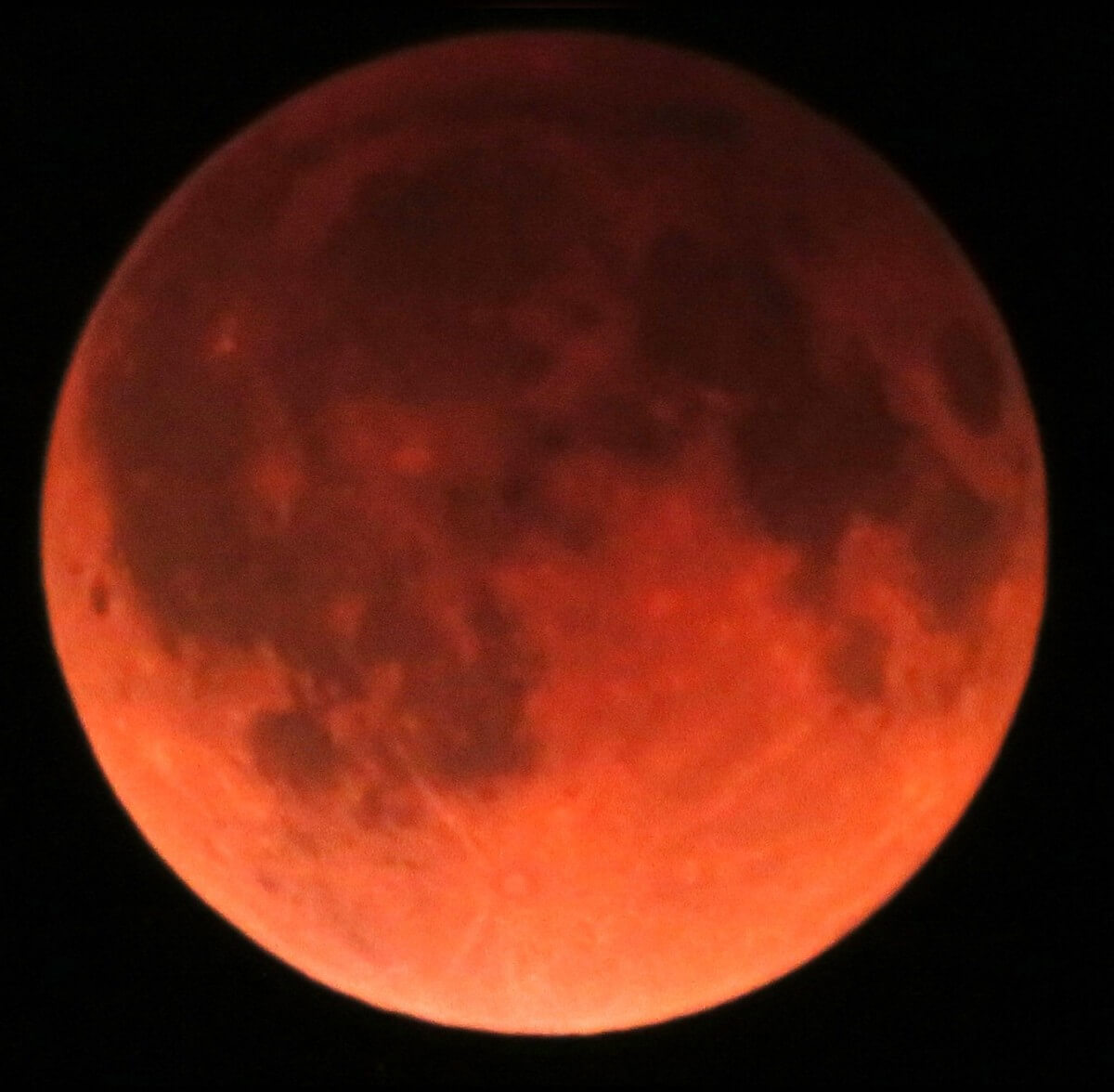
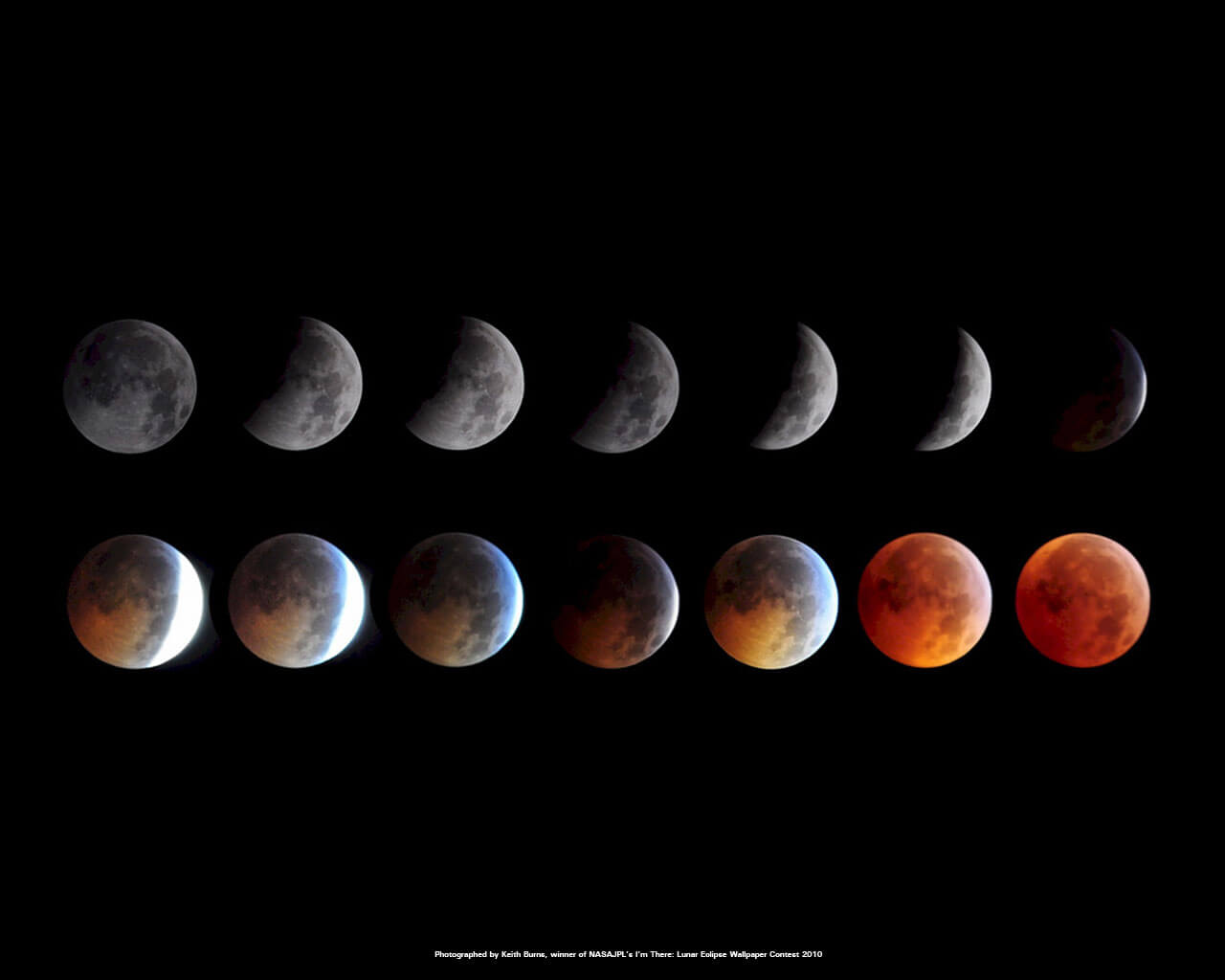
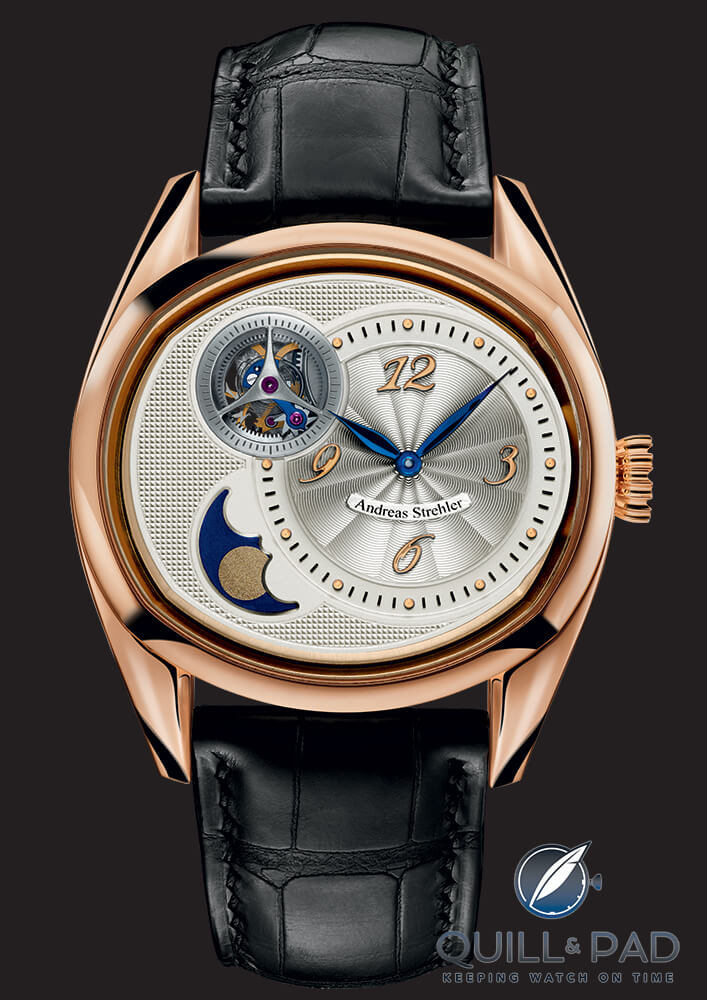
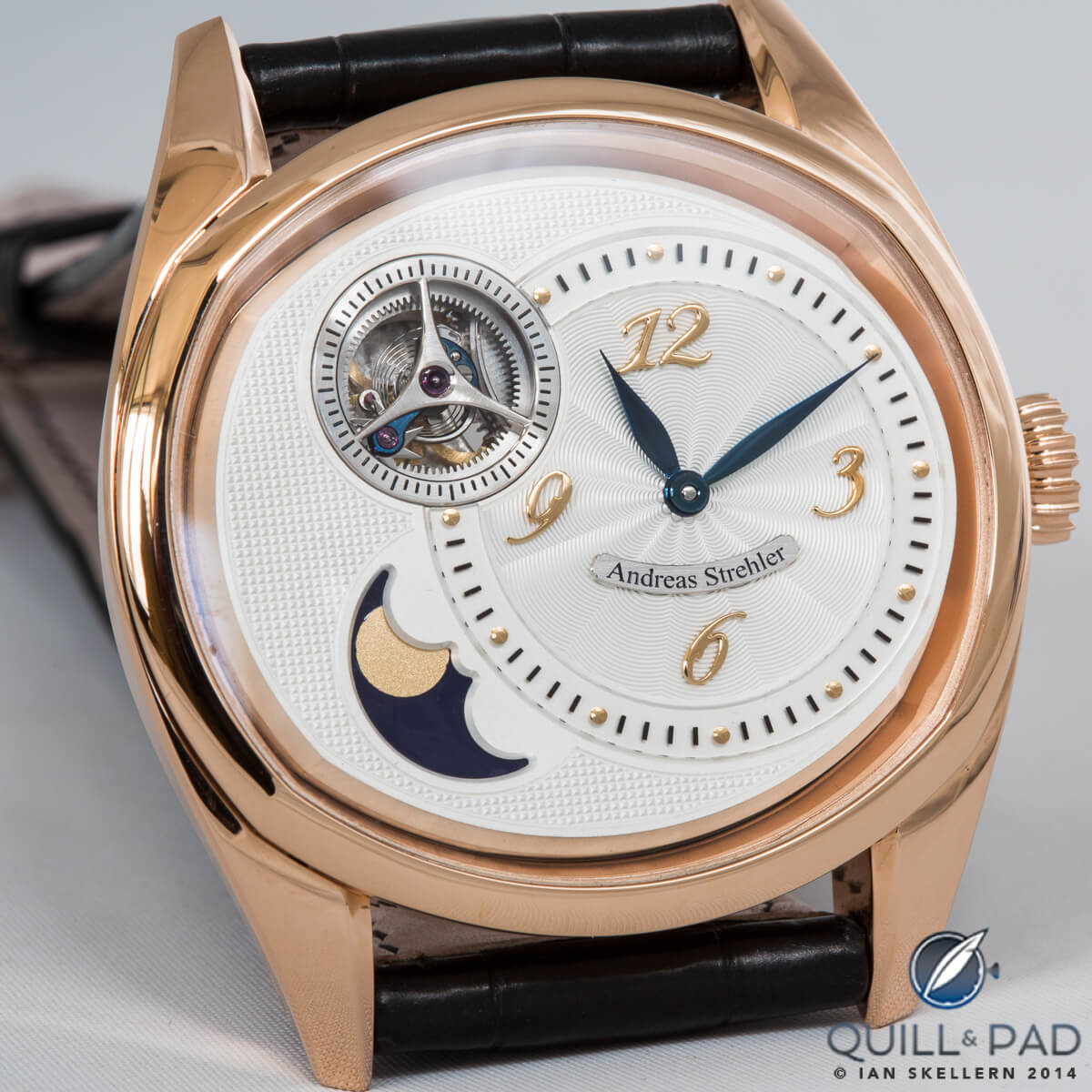
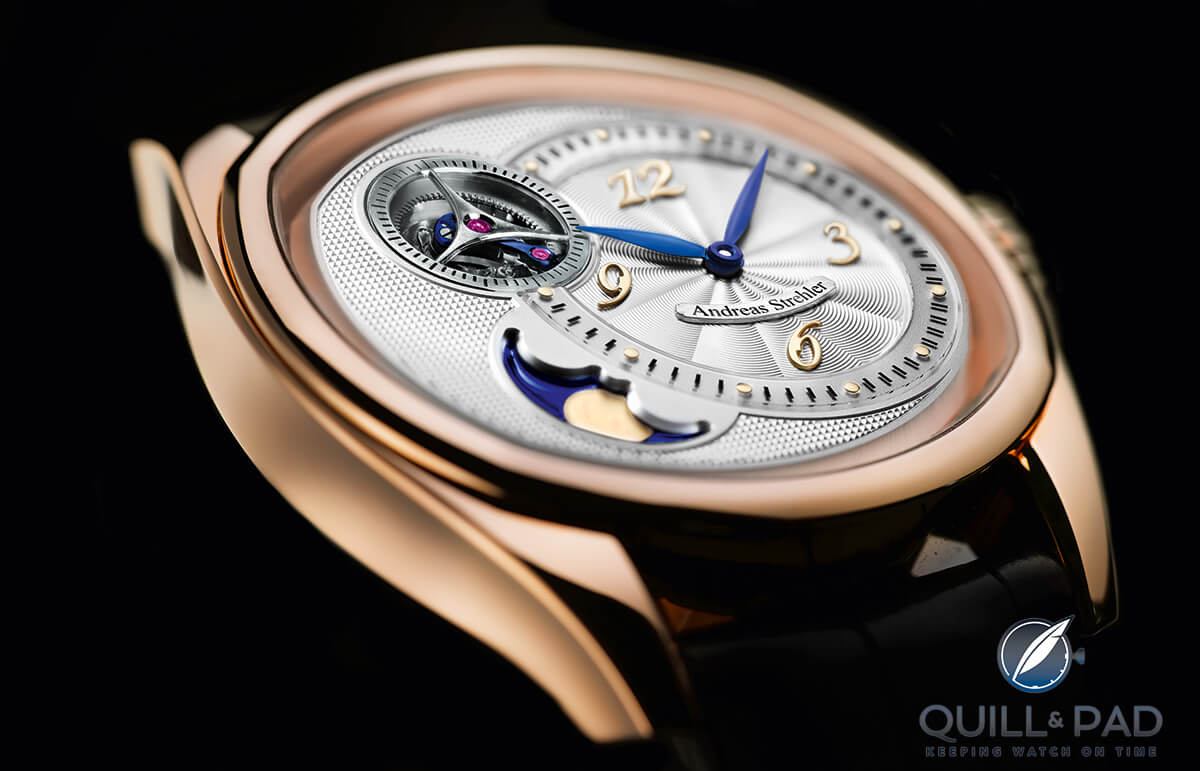
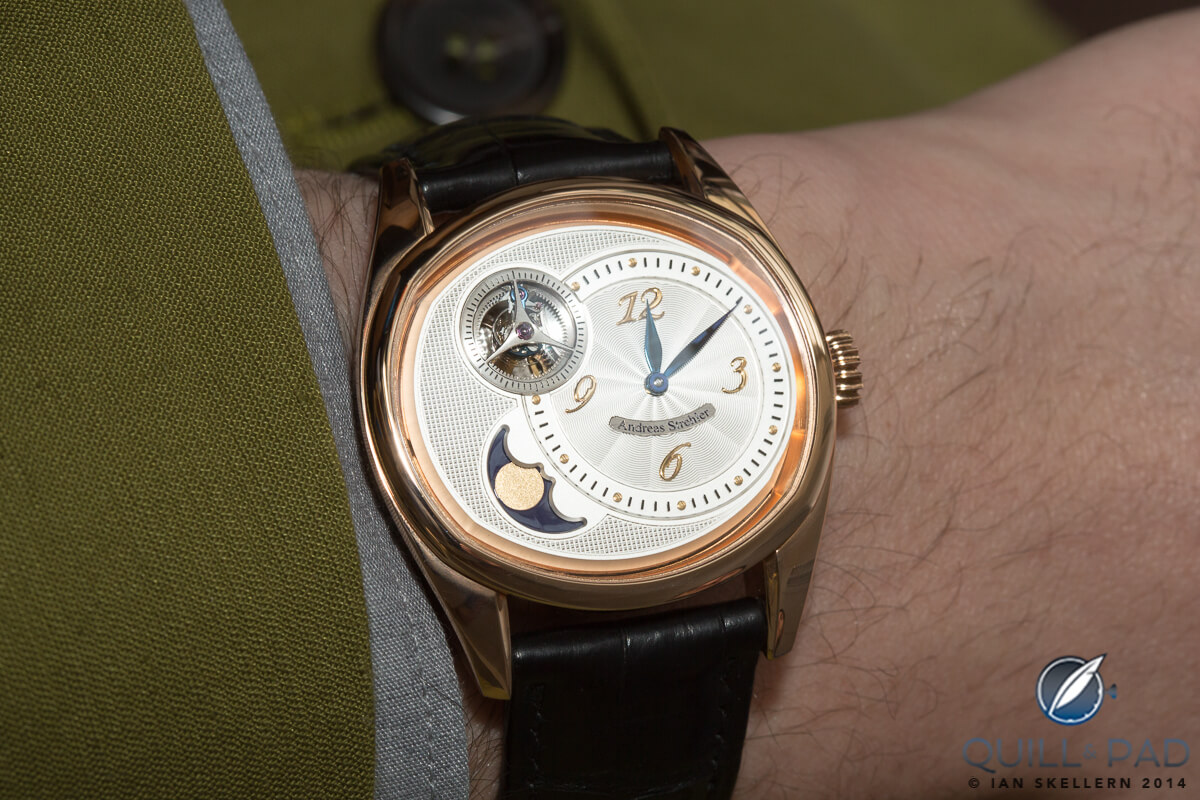
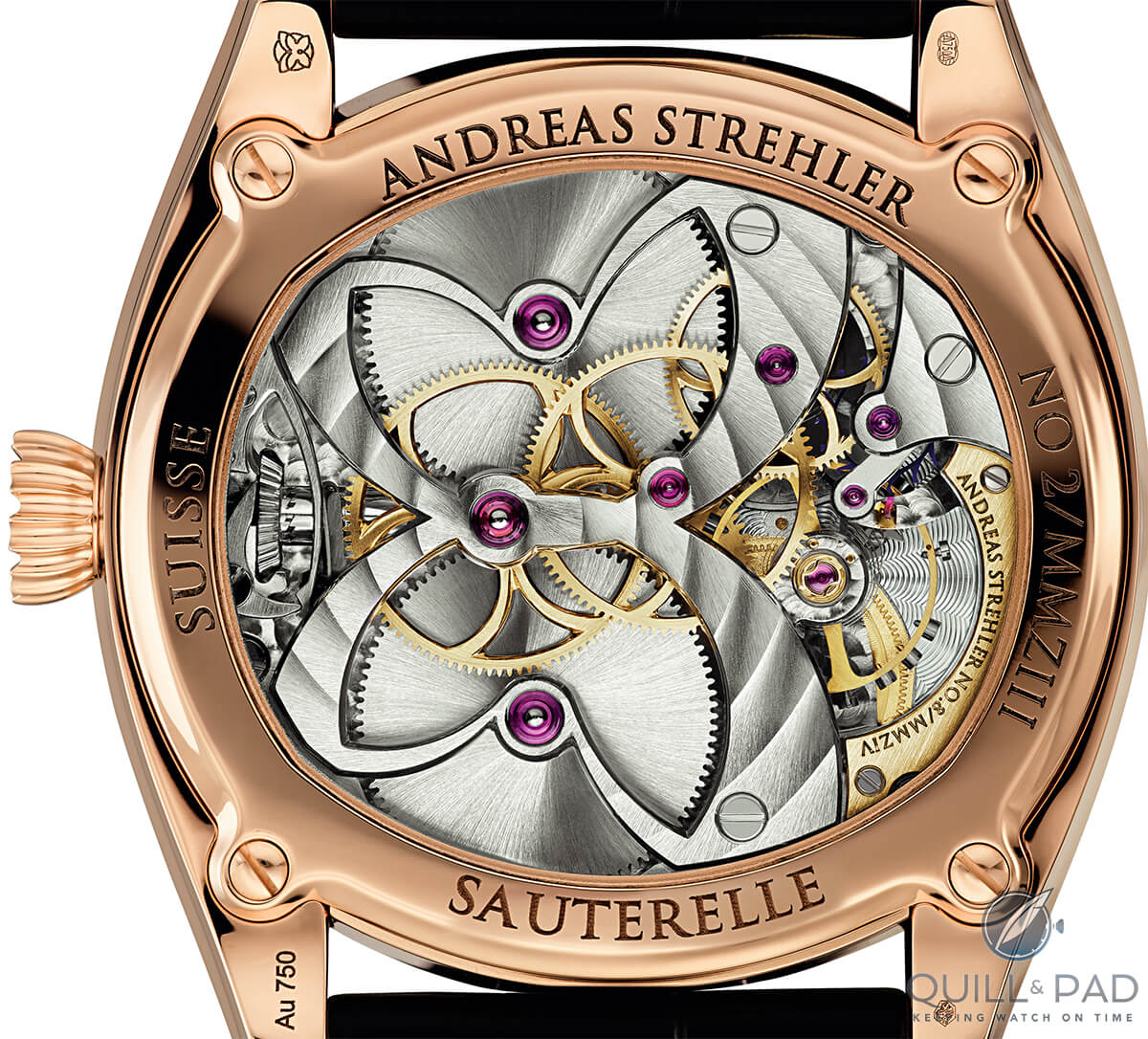
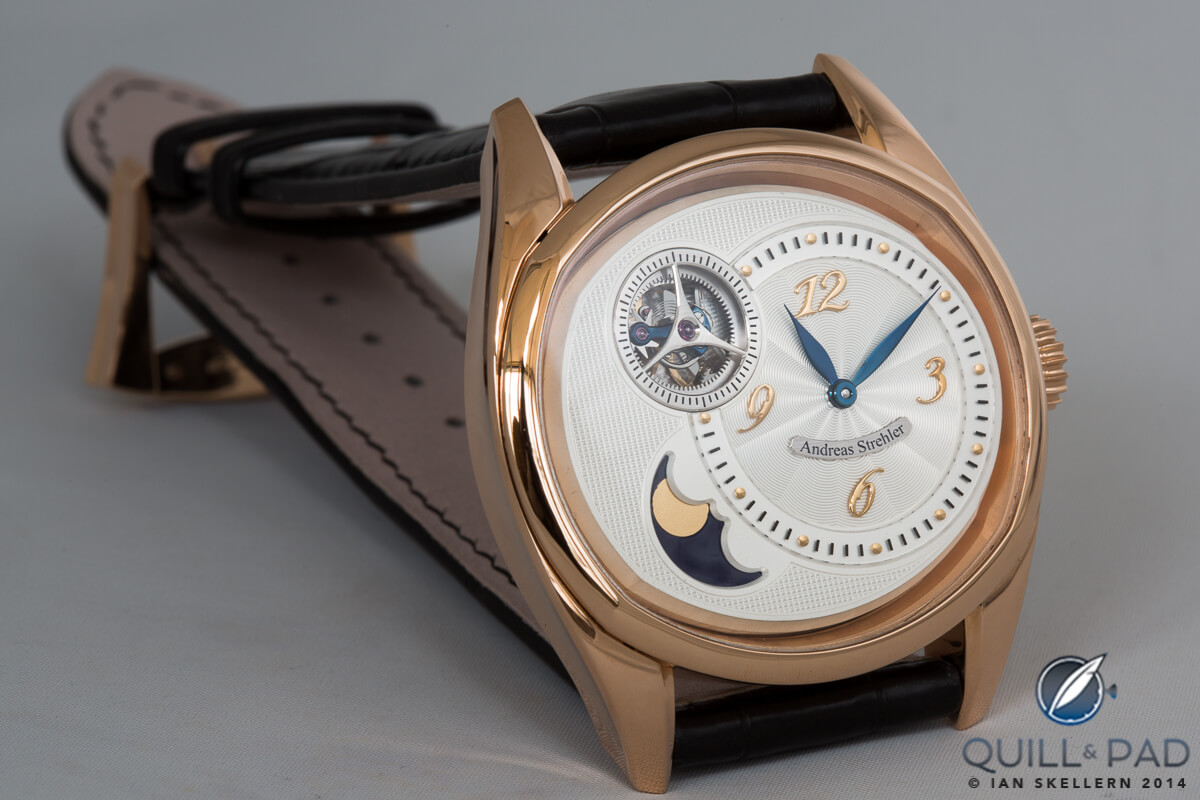


Leave a Reply
Want to join the discussion?Feel free to contribute!